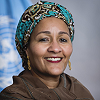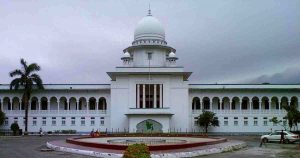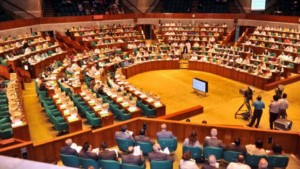Amina J. Mohammed
New York – Throughout my life, I have seen the power of education. I have witnessed how quality education for all can support the creation of dynamic economies and help to sustain peace, prosperity, and stability. I have also observed how education
But I have also seen what happens when young people and their communities are robbed of education – and of the optimism it engenders. In my country, Nigeria, the militant Islamist group Boko Haram purposely removes young people, especially young girls, from education to
We know that each additional year of schooling raises average annual GDP growth by 0.37
In today’s deeply interconnected world, the benefits of strong and inclusive education systems extend even further. Education gives people the knowledge they need to recognize the importance of safeguarding the planet’s finite resources, appreciate diversity and resist intolerance, and act as informed global citizens.
The United Nations Millennium Development Goals, created in 2000 to guide global development over the subsequent 15 years, gave new impetus to efforts to ensure education for all. From 2000 to 2015, primary-school enrolment in the developing world rose from 83% to 91%, reducing the number of out-of-school primary-school-age children from 100 million to 57 million. Moreover, from 1990 to 2015, the global literacy rate among people aged 15 to 24 increased from 83% to 91%, with the gap between men and women declining substantially.
But much remains to be done. Globally, at least 263 million children were out of school in 2016. This includes half of all children with disabilities in developing countries. Furthermore, half of all children of preschool-age – the most crucial years for their cognitive development – are not enrolled in
The situation deteriorates further in conflict zones, where girls are almost two and a half times as likely to be out of school as their peers in stable countries. And this does not cover the estimated 617 million children and adolescents of primary and lower-secondary-school age – 58% of that age group – who are not achieving minimum proficiency in reading and mathematics.
To help close these gaps, the successor to the MDGs, the Sustainable Development Goals, also emphasizes education. SDG4 commits the world to ensure inclusive and equitable quality education and promote lifelong learning opportunities for all – essentially to harness the power of education to unlock every person’s potential. Despite the scale of the challenge and the diverse barriers that can restrict and disrupt learning, we know what an effective strategy would entail.
First, to be a true force for change, education itself must be transformed in response to the realities of accelerating globalization, climate change and
Second, an inclusive and lifelong
For education systems and services to be truly inclusive, however, they must also leave no one behind, such as refugees. UNESCO’s latest Global Monitoring Report estimates that refugees have missed 1.5 billion school days since 2016. While eight of the top ten hosting countries, including several low- and middle-income countries, have shouldered considerable costs despite the strain on education systems to ensure that refugees attend school alongside nationals, most countries either exclude refugees from national education systems or assign them to separate facilities. This entrenches disadvantage and hampers social integration. The two landmark global compacts on migration and refugees adopted by UN member states last December point the way toward addressing this challenge.
Achieving the needed educational transformation will require far more financing than is currently on offer. As it stands, the global annual funding gap for education amounts to nearly $40 billion. Closing this gap will require not just increased domestic financing, but also a renewed commitment from international donors.
Everyone has the right to an education. Upholding this right – and achieving SDG4 – will require well-designed strategies, coupled with a prolonged commitment to implementation and effective cooperation among all relevant stakeholders. The UN and its agencies will continue to support such actions, as we strive to ensure that no one is left behind.
Amina J. Mohammed, former Minister of Environment for Nigeria, is Deputy Secretary-General of the United
© Project Syndicate 1995–2019




